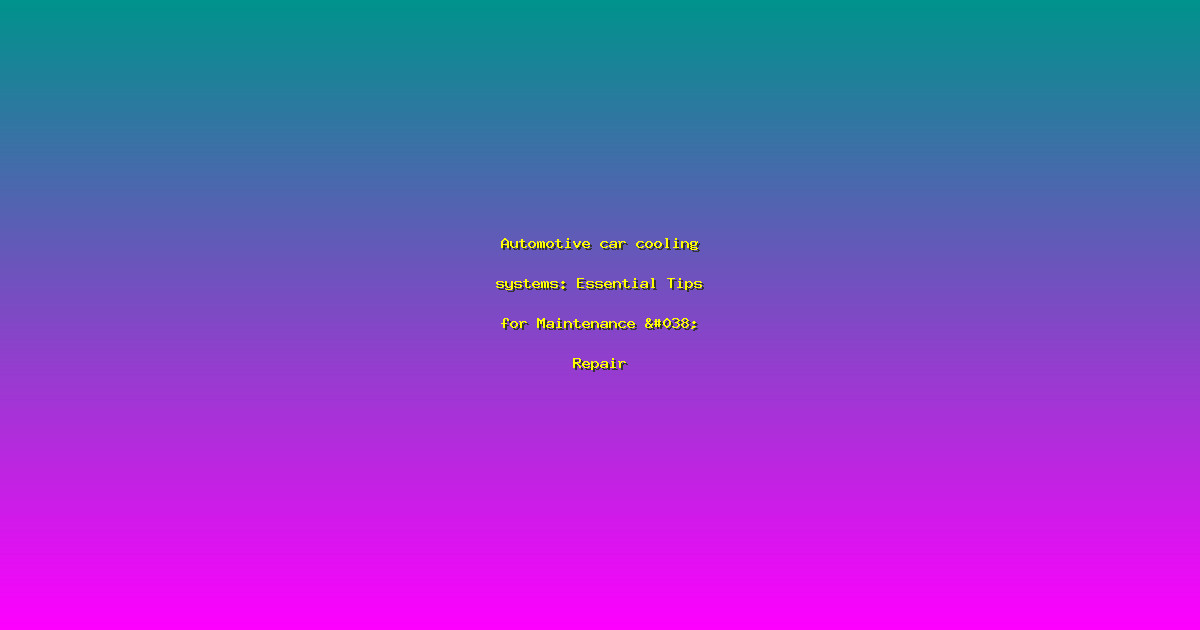Automotive Car Cooling Systems: Essential Tips for Maintenance & Repair
Keeping your vehicle's cooling system in top condition is crucial for preventing overheating and ensuring the longevity of your car. The cooling system, composed of components like the radiator, coolant, and water pump, works to maintain the engine at an optimal temperature. Regular maintenance and timely repairs can save you from costly breakdowns and keep your car running smoothly. This article will guide you through the essentials of maintaining and repairing your car's cooling system.
Regular Maintenance Checks
Regular inspection of your car's cooling system is vital to prevent overheating and damage to your engine. Key components to check include the radiator, hoses, and coolant levels. Ensure that the coolant is at the appropriate level and has the right mix of antifreeze and water to protect against freezing and boiling. Visually inspect the radiator and hoses for any signs of wear, leaks, or damage.
Replacing Coolant
The coolant in your car's cooling system should be changed every 2-3 years or as recommended by the vehicle manufacturer. Over time, coolant can break down, losing its effectiveness and potentially damaging your engine. Replace the coolant with a high-quality antifreeze solution and make sure to flush the system thoroughly before adding new coolant.
Checking the Water Pump
The water pump is a key component in your vehicle's cooling system, responsible for circulating coolant. If you hear strange noises or notice a decrease in coolant levels, it could be a sign of a failing water pump. Regular maintenance checks and timely replacement of the water pump can save you from a major engine overhaul.
FAQs
What are the signs of a failing cooling system?
Common signs include overheating, a sweet smell of coolant, and leaks around the engine or beneath the vehicle.
How often should I check the coolant?
It's a good practice to check the coolant level at least once a month or before a long trip to ensure it's at the correct level and not contaminated.
Can I use tap water as coolant?
No, tap water can cause rust and mineral deposits. Use a mixture of water and antifreeze designed for your vehicle's cooling system.
What causes a radiator to leak?
Leaks can be caused by corrosion, damage from road debris, or stress fractures due to age.
How do I prevent radiator corrosion?
Regularly check and replace the coolant as recommended by the manufacturer, and ensure the radiator cap seals properly to maintain system pressure and prevent air from entering.

